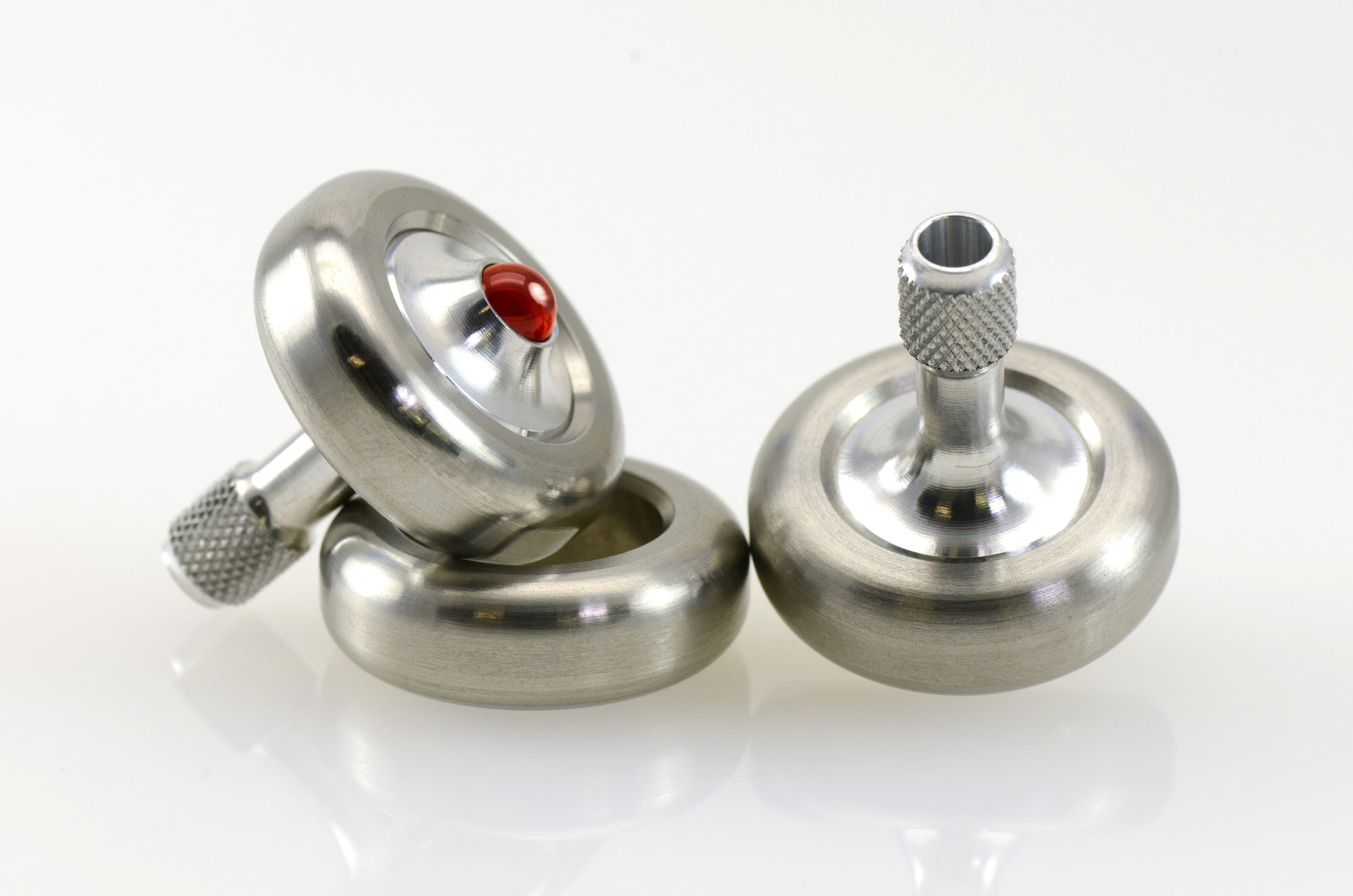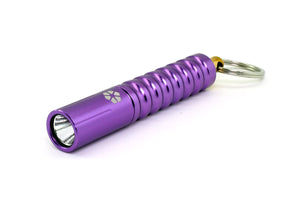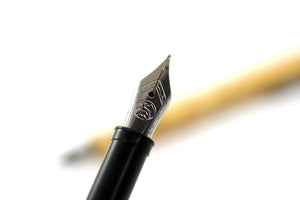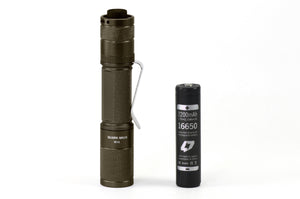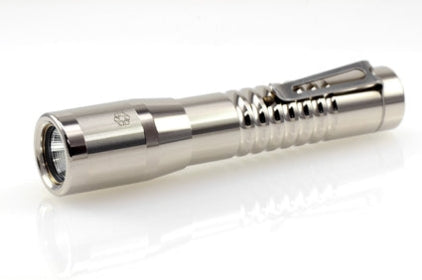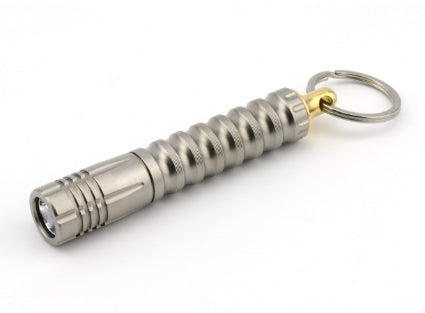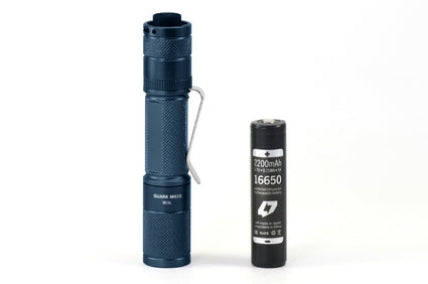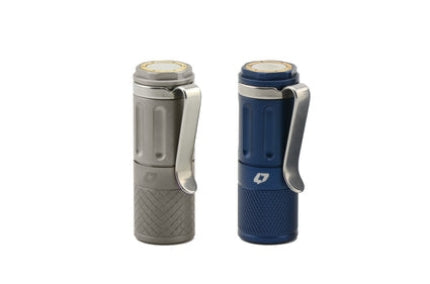Lambda Two Piece (Aluminum & Tungsten)
The Lambda is designed and crafted to be the world's highest precision spin top. When we launched back in 2014, it was also the ONLY precision top in production and spawned an industry. Our design hasn't changed, because it was perfect out of the gate, but we've spent years refining our manufacuring to deliver maximum performance.
Making a good two-piece top is exceedingly difficult. I retired the design for over a year and spent hundreds of hours prototyping to maximize consistency and performance. The tolerance level on both the spindle diameter and bore of the ring are necessarily held to +/- 0.0002 inches...basically the minimum tolerance the lathe is capable of.
Holding this tolerance requires inspecting every 5 parts to make sure the machine is on size. Over the course of the day, the machine will drift up to .002 inches as air, machine, and coolant temperature changes. You'll note this is 10x the allowable deviation. Making parts this precise comes at a cost. If you'd like to geek out you can refer to this article on "The High Cost of Tight Tolerances" on the CNC Cookbook blog.
My friend Joe, from Scout Leather Co., had been telling me for months that I should make a top. My response was always, "I make tools, not toys." But I was intrigued. Who doesn't like tops?
One afternoon I had a few hours to play around on the lathe. I had no plan, I was just cutting a top free-hand on the manual lathe. No measurements, no design drawings. Instead of cutting a cone for the tip, I dug around in an old project box and came up with a ruby sphere I bought for another job. The first time I spun the top it was obvious that I created something totally different in performance and physics from anything I had seen before. I showed the prototype to a few people and the most common response was, "Wait, it's still spinning? Are you sure? It doesn't look like it's moving.There is no way it's still spinning." No one else had seen anything like it either. I thought that was pretty awesome, and I believe awesome is worth sharing.
The secret ingredient (beyond a solid design based on Newton and "the physics") is the instrument-grade ruby sphere. You heard me right, I said ruby. This type of manufactured ruby is used in things like Rolex watches, super-precision measuring instruments, fiber optic transmission lines, and other really expensive and/or sciency stuff. The hardness is 9 on the Mohs scale. Diamond is one of the few harder materials and scores a perfect 10. That alone is awesome! This material has five times more abrasion resistance than carbide, zero porosity, high temperature tolerance, extreme chemical resistance, and extreme hardness.
Broken contact balls are not covered under warranty. NEVER drop the Lambda top onto a tile or granite surface or the ball may shatter. Contact points can be replaced in tops that have hollow spindles (all current models)...assuming there isn't other significant damage to the top.
Hazardous Spin Surfaces: A granite (or tile) counter top is MUCH harder than steel. That means if you drop it on a granite or tile counter top there is a significant chance of damaging the instrument ruby. Please remember, this is not a toy, it is a precision instrument and must be treated as such.
Spin Surface Hazards: Glass is fairly soft, and the ruby will probably shatter glass before the ruby breaks. So if you drop your top onto a mirror or a glass table top it will impact with a TINY amount of surface area and magnify the force. I have not personally experienced this, nor have I heard of it happening, but it's still something to keep in mind.
Replacement Balls: You can replace the contact point of any Lambda Top that has a hollow spindle. Balls cannot be replaced on original tops with solid spindles.
8 Minutes: Put in a little practice and 8 minutes can be reached...some of the time. This was the first big milestone. To go past 8 minutes you have to have a good surface...and good technique. At this point I can break 8 minutes almost every time. 10+ Minutes: If you practice a lot, you'll start seeing spins over 10 minutes...but that isvery hard to do. Even now, I might get 1 out of 5 spins that are over 10 minutes. Just keep in mind that trying for a long spin is one way to enjoy your Lambda, but it's not the only way!


* Presentation Box
-
Material6061 Aluminum & Tungsten
-
Weight44.2g
-
Diameter1"
-
Where it's Made






